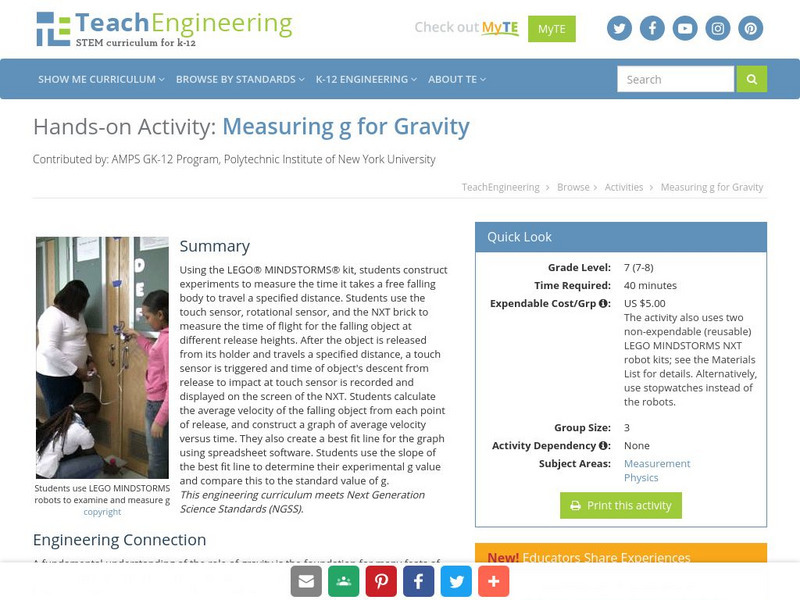Hi, what do you want to do?
Children's Museum
The Children's Museum of Indianapolis: Curious Scientific Investigators: Flight Adventures
Students will make paper rockets, parachutes, and foam gliders to experience how objects move through the air. Explore topics such as thrust, weight, gravity, force, and lift through fun activities and stories and cutting-edge work done...
TeachEngineering
Teach Engineering: Flying With Style
As students begin to understand the physics behind thrust, drag, and gravity and how these relate these to Newton's three laws of motion, groups assemble and launch the rockets that they designed in the associated lesson.
South Carolina Educational Television
Know It All: Lift | Nasa Online
An upward force called lift acts on the airplane and opposes the downward forces of gravity. The lift force allows the airplane to get off the ground and stay in the air. Watch the simulation to see how this works.
University of Minnesota
The Physics of Flight: Bernoulli's Principle
Discusses air flow around the wing of a plane and its effect upon the lift and drag forces. Focuses on the application of Bernoulli's principle to wing design and the subsequent airfoil shapes.
TeachEngineering
Teach Engineering: What Makes Airplanes Fly?
Students begin to explore the idea of a force. To further their understanding of drag, gravity and weight, they conduct activities that model the behavior of parachutes and helicopters. An associated literacy activity engages the class...
NASA
Nasa: Beginner's Guide to Aerodynamics
Includes exhaustive information and a wealth of activities pertaining to aerodynamics and the physics of flight.
Other
Personal: The Laws of Motion
This personal site explains the physics of angular momentum and their application to flight. Part of a much larger site on the procedures, principles, and perceptions of flight.
TeachEngineering
Teach Engineering: Measuring G
Using the LEGO MINDSTORMS NXT kit, students construct experiments to measure the time it takes a free falling body to travel a specified distance. Students use the touch sensor, rotational sensor, and the NXT brick to measure the time of...
NASA
Nasa: Weight and Balance Forces Acting on an Airplane
The effects of forces exerted on an airplane wing are discussed both conceptually and mathematically. Illustrations and sample problems and solutions are provided.











